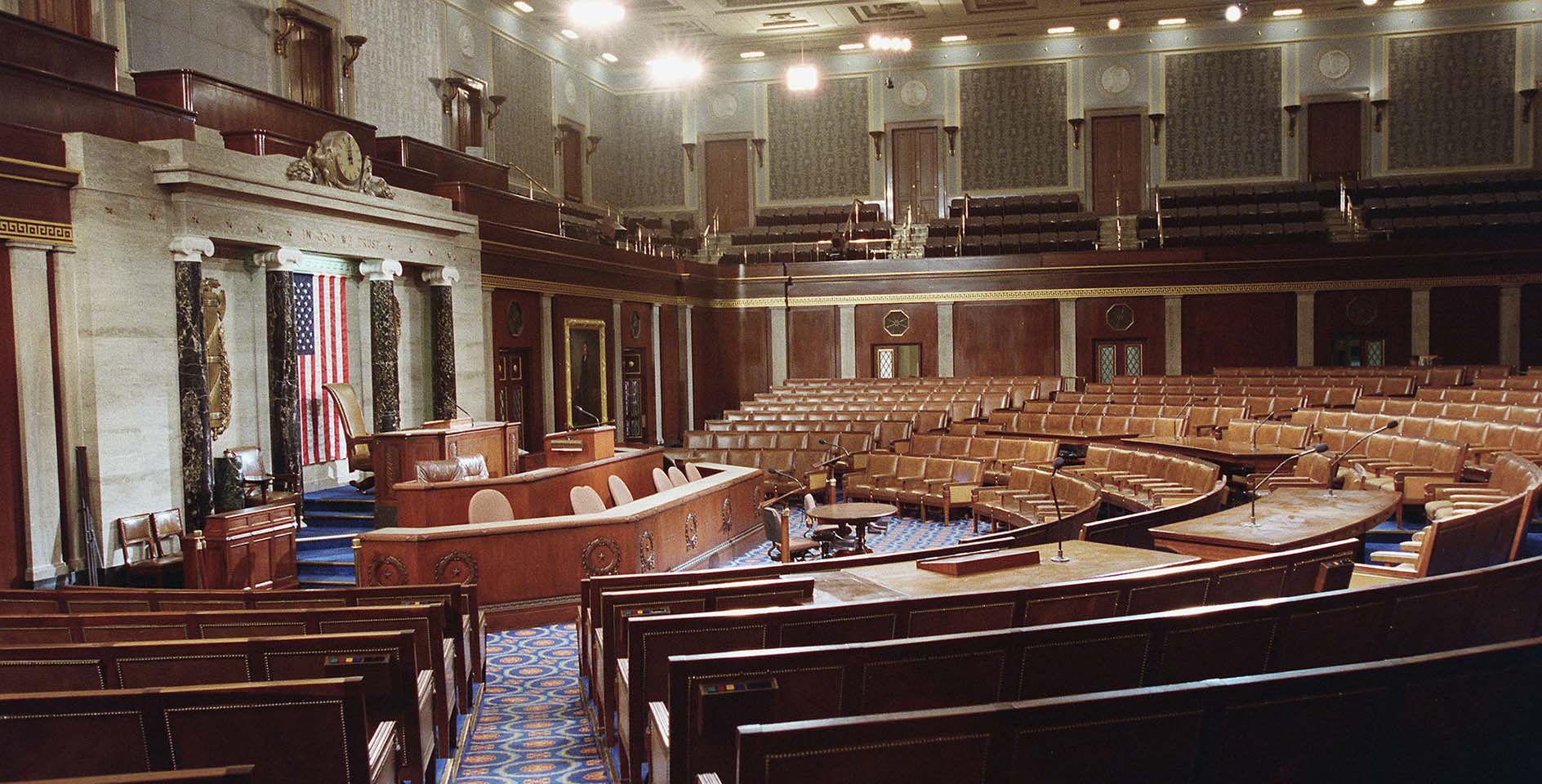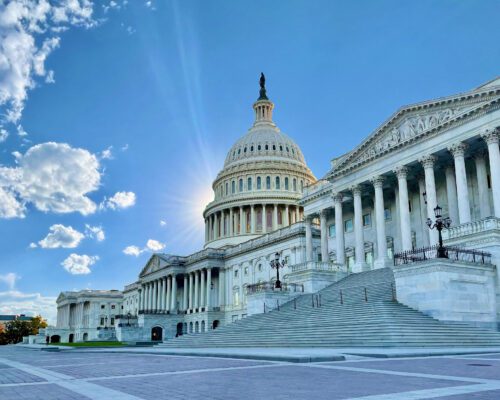Today, President Biden will deliver his second State of the Union address. The State of the Union (SOTU) gives the president the opportunity to report to Congress and the American people on the current condition of the United States and provides a policy vision for the upcoming legislative year.
Unlike last year, Biden is delivering this address to a divided Congress, with Democrats narrowly controlling the Senate and Republicans holding a slim majority in the House of Representatives. Despite these realities, this year presents Biden with his last significant window of opportunity for major legislative action before the 2024 election cycle begins early next year. Looming over this year’s State of the Union is persistently high inflation at home, an intensifying war abroad, and uncertainty about whether the president will seek reelection in 2024.
What do we expect President Biden to address?
Thus far, the contents of Biden’s address have been closely held, so new initiatives that the president would like to call for or major legislation he’d like to push may not be known until the speech begins. However, there are a number of issues that, even without reporting, seem likely to be included.
Abortion
This will be the first State of the Union given in a post-Roe America. Since the Dobbs decision was released last summer, the Biden administration has taken a number of actions to expand abortion access across the country. In addition to congressional efforts to codify a right to abortion following the ruling, the administration has flexed its regulatory powers to push forward abortion and subvert pro-life state laws. Through the administrative state, Biden has mandated abortion access at VA facilities across the nation, made the abortion pill more readily available than ever before, and is reportedly weighing declaring a “public health emergency” to create new avenues for abortion access.
Ukraine
Undoubtedly, the ongoing war in Ukraine will be addressed. As we approach the one-year mark of Russia’s unjust, unprovoked invasion of Ukraine, Biden will likely highlight all that the United States has done to support the Ukrainian people and pledge our country’s continued support. The president may also tout the country’s swift response in welcoming roughly 100,000 Ukrainian evacuees and the work of U.S. aid organizations such as Send Relief in meeting the humanitarian needs caused by the war.
As the war drags on and the economic costs are felt at home and in Europe, it will be important that Biden address why continued support for the Ukrainian cause matters on a humanitarian, economic, and national security level.
Criminal justice reform
It was recently announced that the parents of Tyre Nichols will be in attendance at the State of the Union. Following the recent release of video footage showing five Memphis police officers using excessive force that eventually led to Nichols’ death, there have been renewed calls for policing and broader criminal justice reforms. It is probable that Biden will seize this momentum and urge Congress to take up action on this issue.
The sincerity of these calls to action may be evaluated by what type of solutions the president highlights. Whether he chooses to point to partisan legislation such as the George Floyd Justice in Policing Act, bipartisan legislation that Sen. Tim Scott (R-SC) was involved in negotiating, or to criminal justice reforms outside of policing, such as the EQUAL Act, remains to be seen and will certainly be telling for the likelihood of any future action in this area.
Other issues President Biden should address
In his campaign for the presidency in 2020, Biden often referred to himself as a moderate, unity-seeking candidate. Despite some bipartisan legislative accomplishments on gun reform and infrastructure investments, the first two years of his presidency have been marked by high levels of partisanship and growing influence from the extreme-left wing of the Democratic party. Both a potential 2024 presidential run and the current realities of the U.S. Congress make it essential for Biden to stake out areas where true bipartisan consensus could be found and use the influence of his office to urge Congress to act in these areas.
As mentioned in our recently released 2023 Public Policy Agenda, the following are areas with bipartisan support where we’d like to see both Congress and the president prioritize action.
Pro-Family Policy
In the wake of the Dobbs decision, there has been increased energy from lawmakers of both parties to do more to care for vulnerable women, children, and families. The Southern Baptist Convention (SBC) joined that appeal this summer in anticipation of the decision, calling for pro-life and pro-family policies that “eradicate any perceived need for the horror of abortion.”
Though the parties have deep disagreements on the issue of abortion, there should be common ground in addressing the key factors that drive women to seek abortions. We would like to see the president highlight policies that remedy marriage penalties, empower abortion-vulnerable women to choose life, and provide baseline levels of support for new parents.
China
One of the only moves to earn significant bipartisan support in these early days of this new Congress was the establishment of a committee in the House of Representatives to assess competition with China. As Biden reckons with China’s recent surveillance efforts, Secretary of State Blinken’s postponed visit to China, and his economic and climate goals, it is essential that human rights continue to be at the forefront of these conversations.
In 2021, the SBC became the first protestant denomination ro rightly call what is happening to Uyghur Muslims a genocide, and since then, the ERLC has strongly advocated for the U.S. government to do more in countering China not just economically or militarily, but also morally.
Immigration reform
At the end of the last Congress, an unexpected, eleventh-hour framework emerged in the Senate, coupling much-needed border security improvements with a pathway to permanent status for Dreamers (young immigrants brought to the United States by their parents). Though this framework was not ultimately passed into law last year, the problems it sought to address have not gone away, and bipartisan groups of lawmakers have continued to negotiate possible solutions. Though immigration reforms in a divided Congress remain unlikely, these efforts would be bolstered by prioritization from the president.
Biden certainly has a difficult task at hand to bring the country together amidst a myriad of ongoing challenges at home and abroad. Our hope is that he will pursue these policy areas where helpful compromises can be made and discord can be overcome, rather than pursuing divisive and extreme policies. Ultimately though, Christians do not put their faith in any one leader but trust God’s sovereign plan and pray that he gives each president wisdom in leading our nation.










